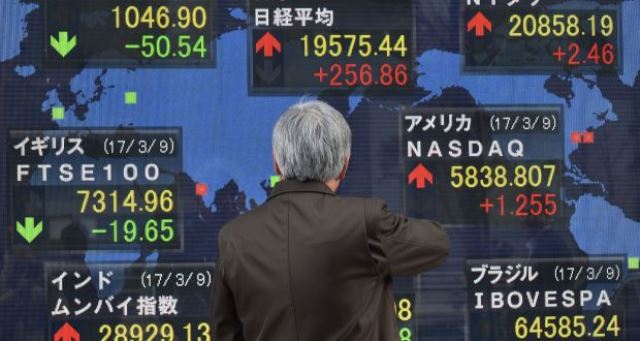Asian stock markets displayed mixed results on Thursday, following sharp declines on Wall Street, as a surge in US Treasury yields prompted investors to adjust their expectations for further interest rate cuts. The uncertainty surrounding the upcoming US presidential election further added to market volatility.
While some observers see the race as too close to call, the possibility of a Donald Trump victory has fueled speculation about potential policy changes that could reignite inflation. Analysts pointed to Trump’s track record of tax cuts, increased trade tariffs, and deregulation as factors that could impact market sentiment, should he win the election over his Democratic rival, Kamala Harris.
Adding to the uncertainty, recent strong economic data and comments from Federal Reserve officials advocating for a cautious approach to monetary easing have dampened hopes for significant interest rate reductions. Last month, traders had anticipated the Federal Reserve would follow its 50-basis-point cut in September with another in November, and a smaller reduction in December. However, these expectations have waned as US Treasury yields climbed to 4.24%, up from 3.73% in September.
Rodrigo Catril, an analyst at National Australia Bank, noted that the surge in yields, combined with the diminished likelihood of immediate Fed rate cuts, has weighed on market sentiment. “Strong economic momentum, along with Fed messaging that highlights a gradual and measured approach to further policy easing, is making the market nervous,” he said. The uncertainty surrounding the election has only exacerbated this nervousness, with traders questioning the potential for changes in taxation, regulation, and trade policy.
Wall Street bore the brunt of investor jitters, with all three major indices closing sharply lower. The Nasdaq saw a drop of more than one percent, as investors sought to lock in profits amid the growing uncertainty.
In Asia, markets showed a mixed response. Hong Kong led the region’s losses, declining by over one percent, with Shanghai, Seoul, Taipei, and Manila also registering falls. In contrast, Tokyo, Sydney, and Wellington posted gains, showing resilience despite the broader regional downturn.
The shift in expectations for rate cuts has also had an impact on currency markets. The US dollar surged against other major currencies, reaching a near three-month high against the Japanese yen and a two-and-a-half-month high against the British pound.
With less than two weeks until the US election, traders are likely to remain cautious, as the outcome could have profound implications for global markets, inflation, and monetary policy.









